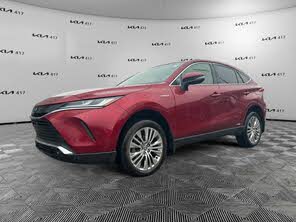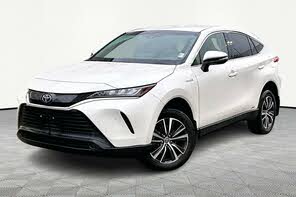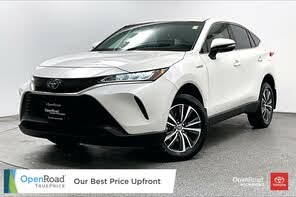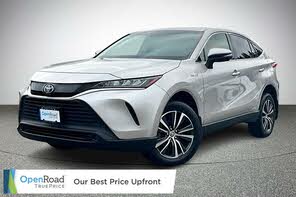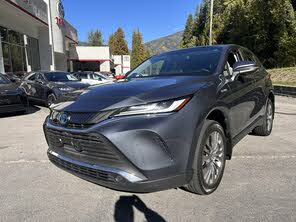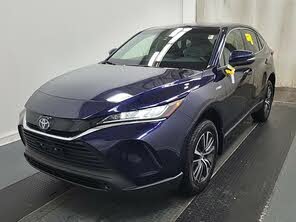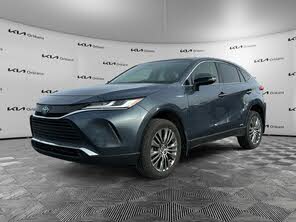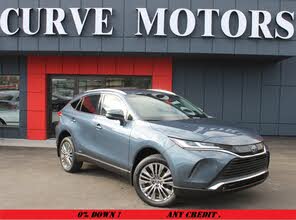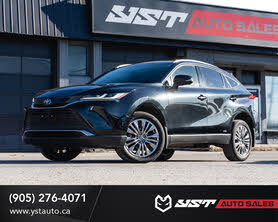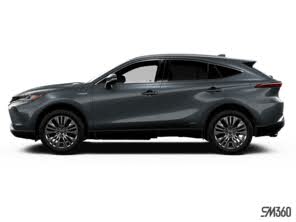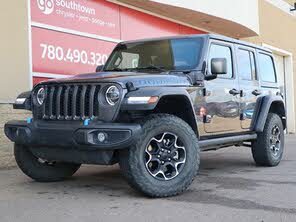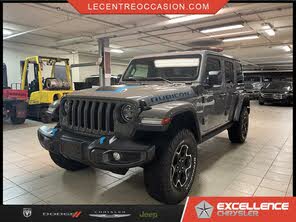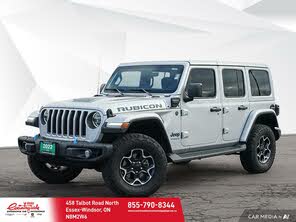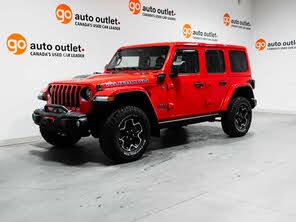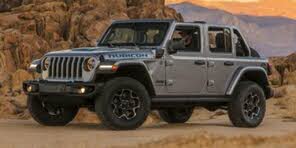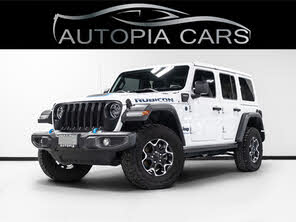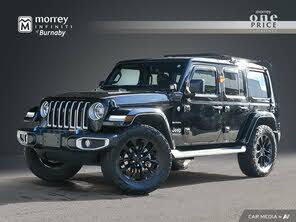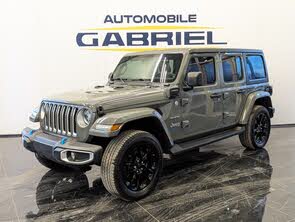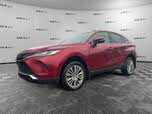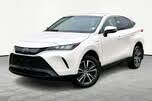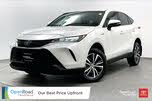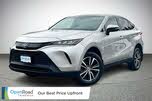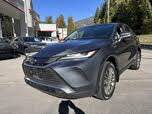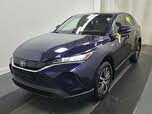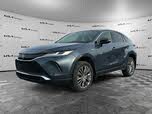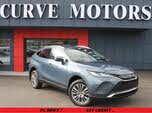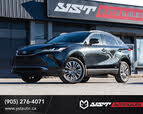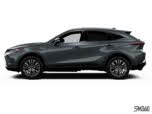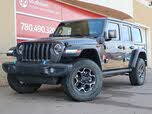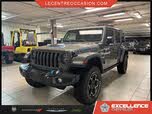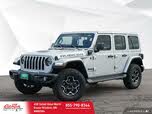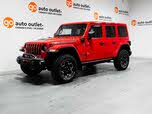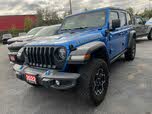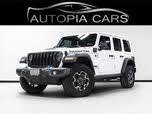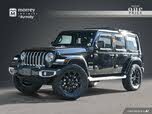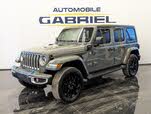2021 Toyota Venza vs 2022 Jeep Wrangler 4xe
Overview | |
MSRP$32,670 | MSRP$54,595 |
Average price$38,625 | Average price$48,909 |
Listings62 | Listings39 |
Ratings & Reviews | |
User Reviews | User Reviews |
Expert reviews8.3 out of 10 | Expert reviews |
2021 Toyota Venza Reviews SummaryAt first glance, the 2021 Toyota Venza looks more like a Lexus than a typical Toyota, which is fitting, because the Venza is anything but typical. The new Venza blends a new approach to in-car technology with fresh exterior and interior design. Like the Nissan Murano, Honda Passport, Ford Edge, and Chevrolet Blazer, the 2021 Venza is a two-row SUV meant to be more sophisticated than the family-friendly Nissan Rogue, Honda CR-V, Chevrolet Equinox, and Toyota RAV4. There is no three-row Venza option. It also comes only with a hybrid powertrain—for better or worse—something that its competition is lacking. All-wheel drive is also standard. The Venza’s $38,490 Canadian starting price is slightly higher than the Murano and Blazer, but it comes with the traditionally more expensive hybrid powertrain. Is the hybrid worth shelling out a little more for in a new vehicle? | |
2022 Jeep Wrangler 4xe Reviews Summary | |
No video found | |
Popular Features & Specs | |
Engine2.5L 219 hp I4 Hybrid | Engine2.0L 375 hp I4 Hybrid |
Drive TrainAWD | Drive Train4X4 |
Seating Capacity5 | Seating Capacity5 |
Horsepower | Horsepower375 hp @ 5250 rpm |
EV Battery Capacity0.93 kWh | EV Battery Capacity17.3 kWh |
MPG City40 | MPG City20 |
MPG Highway37 | MPG Highway20 |
Battery Charge Time (240V) | Battery Charge Time (240V)2.4 hours |
Engine | |
Engine Name2.5L 219 hp I4 Hybrid | Engine Name2.0L 375 hp I4 Hybrid |
Torque | Torque470 lb-ft @ 3000 rpm |
Horsepower | Horsepower375 hp @ 5250 rpm |
Battery Charge Time (240V) | Battery Charge Time (240V)2.4 hours |
DrivetrainAWD | Drivetrain4X4 |
Fuel Economy | |
EV Battery Capacity0.93 kWh | EV Battery Capacity17.3 kWh |
MPG City40 | MPG City20 |
MPG Highway37 | MPG Highway20 |
Interior | |
Seating Capacity5 | Seating Capacity5 |
Key Features | |
Navigation System | Navigation SystemStandard |
Safety | |
Front Crash Overall4 | Front Crash Overall |
Side Crash Overall5 | Side Crash Overall |
Dimensions & Capacity | |
Cargo Space28.8 cu ft | Cargo Space27.7 cu ft |
Curb Weight3847 lbs | Curb Weight5100 lbs |
Height65.9 in | Height73.6 in |
Length186.6 in | Length188.4 in |
Width73.0 in | Width73.8 in |
Wheelbase105.9 in | Wheelbase118.4 in |
Maximum Payload900 lbs | Maximum Payload1280 lbs |
Number of doors4 | Number of doors4 |
Maximum Towing Capacity | Maximum Towing Capacity3500 lbs |
Overview | ||
MSRP | $32,670 | $54,595 |
Average price | $38,625 | $48,909 |
Listings | ||
Ratings & Reviews | ||
User reviews | ||
Expert reviews | 8.3 out of 10Read full review | |
Pros & cons | ||
Summary | At first glance, the 2021 Toyota Venza looks more like a Lexus than a typical Toyota, which is fitting, because the Venza is anything but typical. The new Venza blends a new approach to in-car technology with fresh exterior and interior design. Like the Nissan Murano, Honda Passport, Ford Edge, and Chevrolet Blazer, the 2021 Venza is a two-row SUV meant to be more sophisticated than the family-friendly Nissan Rogue, Honda CR-V, Chevrolet Equinox, and Toyota RAV4. There is no three-row Venza option. It also comes only with a hybrid powertrain—for better or worse—something that its competition is lacking. All-wheel drive is also standard. The Venza’s $38,490 Canadian starting price is slightly higher than the Murano and Blazer, but it comes with the traditionally more expensive hybrid powertrain. Is the hybrid worth shelling out a little more for in a new vehicle? | |
Video | No video found | |
Popular Features & Specs | ||
Engine | 2.5L 219 hp I4 Hybrid | 2.0L 375 hp I4 Hybrid |
Drive Train | AWD | 4X4 |
Seating Capacity | 5 | 5 |
Horsepower | 375 hp @ 5250 rpm | |
EV Battery Capacity | 0.93 kWh | 17.3 kWh |
MPG City | 40 | 20 |
MPG Highway | 37 | 20 |
Battery Charge Time (240V) | 2.4 hours | |
Engine | ||
Engine Name | 2.5L 219 hp I4 Hybrid | 2.0L 375 hp I4 Hybrid |
Torque | 470 lb-ft @ 3000 rpm | |
Horsepower | 375 hp @ 5250 rpm | |
Battery Charge Time (240V) | 2.4 hours | |
Drivetrain | AWD | 4X4 |
Fuel Economy | ||
EV Battery Capacity | 0.93 kWh | 17.3 kWh |
MPG City | 40 | 20 |
MPG Highway | 37 | 20 |
Interior | ||
Seating Capacity | 5 | 5 |
Key Features | ||
Navigation System | Standard | |
Safety | ||
Front Crash Overall | 4 | |
Side Crash Overall | 5 | |
Dimensions & Capacity | ||
Cargo Space | 28.8 cu ft | 27.7 cu ft |
Curb Weight | 3847 lbs | 5100 lbs |
Height | 65.9 in | 73.6 in |
Length | 186.6 in | 188.4 in |
Width | 73.0 in | 73.8 in |
Wheelbase | 105.9 in | 118.4 in |
Maximum Payload | 900 lbs | 1280 lbs |
Number of doors | 4 | 4 |
Maximum Towing Capacity | 3500 lbs | |

By: CarGurus + AI
At CarGurus, our team of experienced automotive writers remain at the heart of our content operation, conducting hands-on car tests and writing insightful guides that are backed by years of industry experience. To complement this, we are harnessing AI to make our content offering more diverse and more helpful to shoppers than ever. To achieve this, our AI systems are based exclusively on CarGurus content, ratings and data, so that what we produce is both unique to CarGurus, and uniquely helpful to car shoppers.

